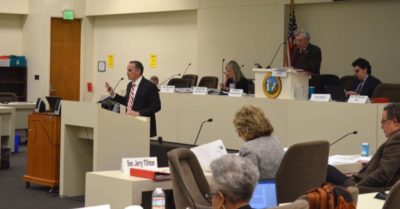It’s March and for many North Carolinians that means the thrill – and often the great agony – of playoff basketball. And while this isn’t a blog about sports, education experts across the state took a page from our favorite teams when they came together to size up their opponents last month at the second meeting of the myFutureNC Commission.
The adversary – in this case – is an educational attainment rate that lags behind current (and projected) employer needs, one that could jeopardize the economic future of our state. Before Commissioners draw up their game plan and set out to defeat this opponent, they wisely took time to dig deep and explore the roots of the problem.
What are the barriers that keep talented, driven North Carolinians from obtaining the degrees and credentials that are so vital to their futures? As you can imagine, the answer is complicated. Here are a few key issues that contribute:
- There are 30,000 four-year olds from low-income families not enrolled in a state Pre-K program, despite being eligible.
- In 2016-17, just 58 percent of 3rd grade students were reading on grade level.
- In the same year, 47 percent of high school graduates met zero ACT college readiness benchmarks.
These statistics suggest that our education system is leaving students behind a multiple points along the continuum. Even more troubling, these averages mask large gaps in student performance across racial and socioeconomic subgroups. Rebecca Tippett, executive director of Carolina Demography and the meeting’s keynote speaker, reports that young men are less likely to succeed than young women at every point in North Carolina’s education continuum.
However, although creating a seamless system of education that supports students as they transition from one level to the next is an incredibly tall task, it also provides some of the greatest encouragement for Commissioners. Now, more than ever, education occurs over a life time. Attainment is a snapshot of a cumulative education process that has multiple entry points and exit ramps across one’s lifetime. Thus, it is never too early — or too late — to begin the work of supporting students on their journey to a sound education and a fulfilling career.
Share your thoughts with us on Twitter and check out the myFutureNC survey below to keep the conversation going!
Editor’s note: This blog was originally published by the Hunt Institute. It has been posted with the author’s permission.





